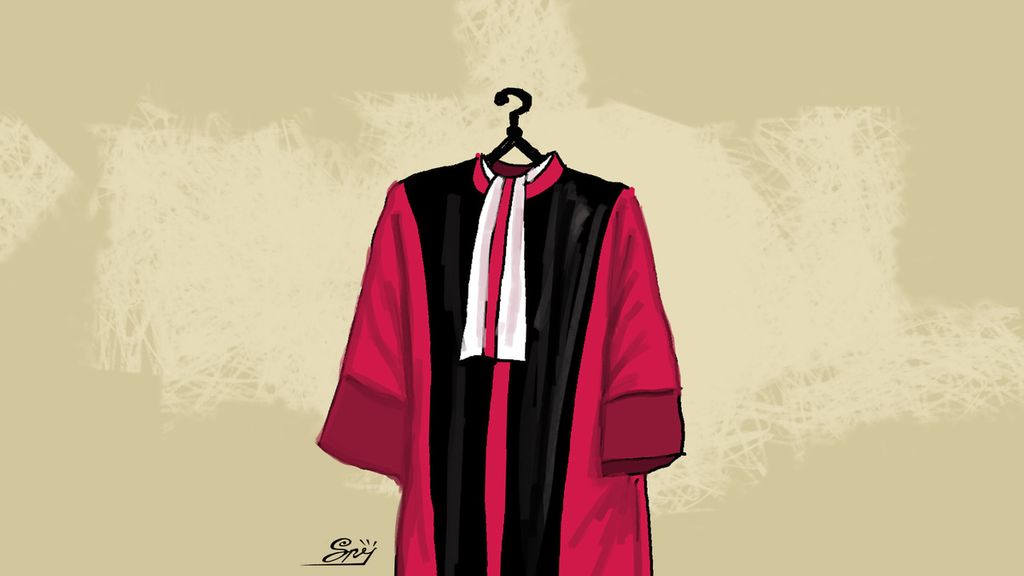
The political decision of the House of Representatives (DPR) to replace Constitutional Justice Aswanto with Constitutional Court secretary-general Guntur Hamzah raises many questions.
Guntur took the oath as a constitutional justice on Wednesday, 23 November 2022, at 09:30 a.m., at the State Palace in Jakarta. Five hours later, the Constitutional Court (MK) in considering the judicial review decision of Article 87 of the Constitutional Court Law stated that dismissal of the constitutional justice outside the provisions of Article 23 of the Constitutional Court Law was not in line with the constitution.
Also read:
> Annul Decision to Replace Justice
> President: Please Go to the Constitutional Court
In Law No. 4/2003 on the Constitutional Court and Law No. 3/2020 Article 23, the prerequisites for dismissing constitutional justices are regulated in a limitative manner. The dismissal of constitutional justices is carried out on the grounds of death, resignation, reaching the age of 70 and illness for three consecutive months. Constitutional justices can be dishonorably dismissed if they commit a crime.
Bambang said the DPR was disappointed because Aswanto often canceled laws.
It is in this corridor that Aswanto's replacement can be examined. Is the reason for the DPR’s dismissal of deputy chief justice of the Constitutional Court Aswanto, as conveyed by the chairman of the DPR’s Commission III, which oversees legal affairs, Bambang Wuryanto, included in the conditions for dismissing constitutional justices? Bambang said the DPR was disappointed because Aswanto often canceled laws. "Of course disappointing, right. What if the DPR product is annulled by him himself. He is the representative of the DPR,” said Bambang, Friday (30/9). Bambang made an analogy of constitutional justices like company directors and the DPR as owners.

The DPR Commission III's argument is clearly outside the grounds of the Constitutional Court Law. The disappointment of Commission III of the DPR because Aswanto often annulled laws is an emotional political reason that has no constitutional basis. The idea behind the formation of the Constitutional Court was to give room for citizens to examine the material of the law if it contradicts the Constitution.
The public should check whether the appointment of Guntur as a constitutional justice complies with the regulations. Article 19 of Law No. 24/2003 states, "The nomination of constitutional justices is carried out in a transparent and participatory manner." In the explanation section it is stated, "...the candidate for constitutional justices is published in both print and electronic mass media so that the public has the opportunity to provide input on the candidate".
Now it depends on the statesmanship of the constitutional justices in responding to the power play within the Constitutional Court.
The question is, has the DPR complied with the requirements for the dismissal and appointment of constitutional justices according to the regulations? The answer is clearly not yet. In the name of politics, the rules in the Constitutional Court Law are hit by the DPR. The DPR's political move is a black record in the administration of judicial power. Now it depends on the statesmanship of the constitutional justices in responding to the power play within the Constitutional Court.
(This article was translated by Hyginus Hardoyo)

